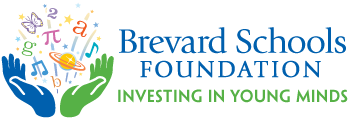Brevard Schools Foundation received a $120,000 grant from The Boeing Company providing funding for student opportunities to engage in Science, Technology, Engineering, and Mathematics (STEM) Design Challenges, participate in experiential study trips, and for STEM industry workforce volunteers to participate in the programs in meaningful ways.
The Destination Mars design challenge, a culmination of year-long efforts put forth by elementary students, took place March 21 through March 31 with 29 teams, representing 23 schools, competing in four mission areas. The Destination Mars Event is in its fourth year and returning to in-person displays and judging, following two years as an online platform due to the Covid-19 situation. Its goal is to cultivate tomorrow’s innovators by engaging students in science, technology, engineering, and math (STEM) challenges. The projects are designed to develop real-world problem-solving skills, simulation-based inquiry, and collaboration.
Teams were presented with four standards-aligned STEM challenges that were planned and executed in class and in after-school STEM clubs. During the Destination Mars Event the teams will have an opportunity to present their solutions to judging panels comprised of professionals from The Boeing Company, Brevard County Public Schools, and other organizations.
Student teams selected one of the following challenges:
- Mission Base Camp: Students identified one of the challenges that humans might face living or working on Mars and then designed a pod for their base camp that would address the challenge they identified.
- Mission iWear: Teams designed a wearable device that would assist a member of their mission or another organism with maintaining homeostasis on Mars. The wearables included an AdaFruit Circuit Playground which was coded by the students using MakeCode block coding.
- Mission Robotic Rover Spike Prime: Teams used block programming to program their rover (the LEGO Spike Prime) to complete missions on Mars.
- Mission Bio-Dome: Teams used Minecraft: Education Edition to design and build a Martian Bio-Dome that would allow members of the mission to maintain homeostasis on Mars.
- Mission Reporter: Student documented the progress of each mission and complied a video to show the team’s journey.
The grant from The Boeing Company also provides funding for Destination Space, an experiential field program at Kennedy Space Center for all 6th grade students (5,000+) in Brevard Public Schools this school year. A new initiative this year included Girls in STEM, a Saturday hands-on program at 8 Title 1 schools, that encouraged the participation of female minorities and helped to increase the number of participating teams.
“Science, technology, engineering and math disciplines help create and innovate – two of the core principles we use every day in making world-class products at Boeing,” said Ingrid Morales, Boeing Global Engagement community investor. “It is clear to me that this program is providing the hands-on learning needed to prepare the next generation for the aerospace jobs of the future.”
“STEM education develops students as innovators and problem solvers,” said Janice Kershaw, President/CEO of Brevard Schools Foundation. “The partnership with The Boeing Company helps students gain firsthand experience in STEM learning, such as sorting through data, testing hypotheses, and presenting solutions. Without this kind of practical experience, many students might never gain the confidence to advance their STEM education needed for our future workforce.”
Check out some of the media coverage of the event at Spectrum News13, Space Coast Daily.com, and Florida Today.






